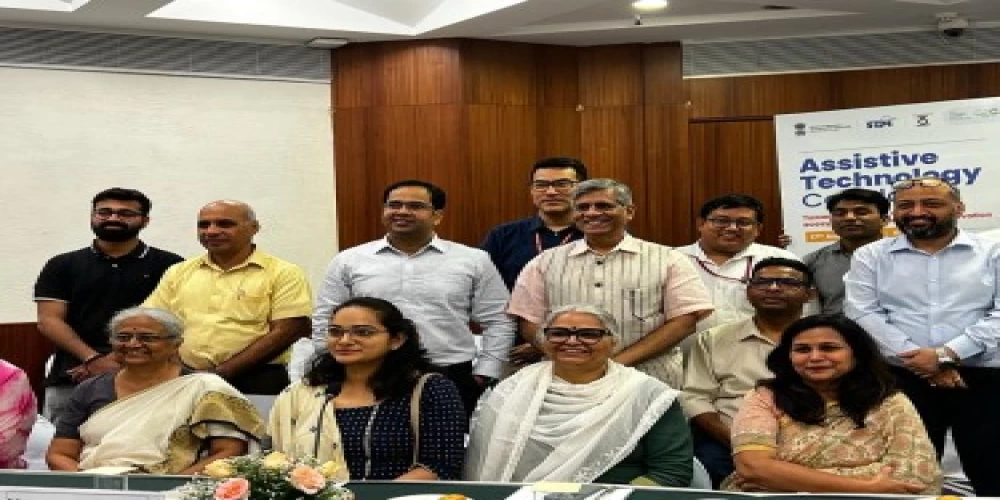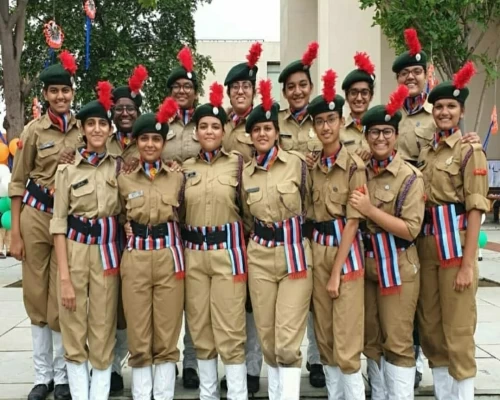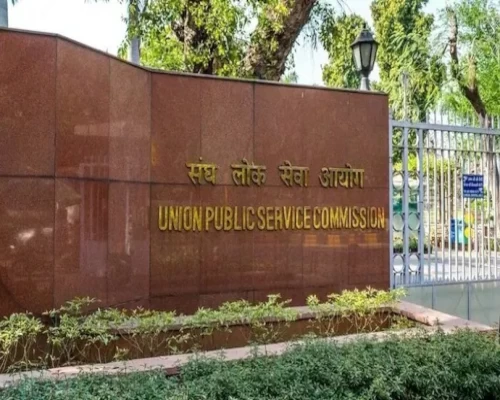
New Delhi: A pioneering initiative by Software Technology Park of India under the Ministry of Electronics and Information Technology and National Centre for Promotion of Employment for Disabled People (NCPEDP) promises to make India as a global hub for assistive technology (AT) devices used by disabled people. The two agencies are working to establish an AT Hub comprising one centralized virtual hub and three physical hubs at eminent institutes including IIT-BHU, Varanasi. The Hub is envisaged as a center of excellence and entrepreneurship for research and innovation, building AT evidence base, making policy interventions, among others.
An all-stakeholders consultation was held in New Delhi to deliberate on the way forward for AT with participation from the Department of Empowerment of persons with Disabilities (DEPwD), IIT Delhi, IIIT Delhi, ICMR, UNESCO, ILO, National Institute of Urban Affairs, AIIMS among others.
The meeting deliberated on the need for a holistic and decisive push to the assistive technology ecosystem. World over, according to WHO Global Report on Assistive Technology, one in three people globally require assistive products to lead independent lives. This number is projected to rise to 3.5 billion by 2050, necessitating comprehensive efforts to meet these demands.
“Despite this need, an estimated only 5-15% of people who require AT have access to them due to high costs, lack of financing, availability, awareness, and trained personnel for servicing. For instance, production of hearing aids meets only 10% of global needs and 3% of the needs in low and middle income countries. In India, the demand for AT is highly fragmented and yet to evolve as a formal industry. STPI is excited at the AT’s potential in making a more inclusive and equitable world, besides tremendous business opportunities,” said Dr Devesh Tyagi, Senior Director, STPI during the AT Conclave.
Assistive technology (AT) is an umbrella term for assistive products and their related systems and services that enables disabled people to live healthy, productive, independent, and dignified lives.
The three proposed hubs are together likely to support 150 start ups over a period of five years, which shall provide impetus to innovation as well as manufacturing of assistive devices. “This is a giant leap forward in establishing India as a global manufacturing hub of assistive devices. WHO says 2.5 billion people globally require at least one assistive device indicating a huge market. With the current focus of the government on establishing India as a manufacturing giant, this is an opportune moment for us to strive to grab a big pie of this target market,” said Arman Ali, Executive Director, NCPEDP.
Experts at the consultation highlighted the need for collaborative efforts to provide impetus to the AT industry. “A good database is needed to understand and gauge the needs of the AT devices. Also, there is a need for all stakeholders, including various relevant ministries, to forge collaborations to provide a push to the AT industry,” said Dr Suraj Singh Senjam of All India Institute of Medical Sciences (AIIMS), New Delhi.
Prof PV Madhusudan Rao, IIT Delhi said, “We shall be happy to support this initiative which has a lot of potential. It is heartening that the discourse around this issue is picking momentum. The potential of assistive technology was even discussed at a G20 forum recently.”
Ali informed that NCPEDP has been running the Universal Design Awards for 13 years to create awareness in the field of accessibility and universal design. “Our experience has made us realize that a lot is happening around assistive technology in India including products and services, but all in silos. It is in this background we have come up with this idea of an AT Hub,” added Ali.
Other experts at the consultation comprised Ravinder Singh, Indian Council of Medal Research (ICMR); Hitesh Vaidya, National Institute of Urban Affairs (NIUA); Gagan Bawa, Accenture; Vishal Thakur, NASSCOM Foundation; Preeti Sridhar, Mariwala Health Initiative, among others. /BI/












